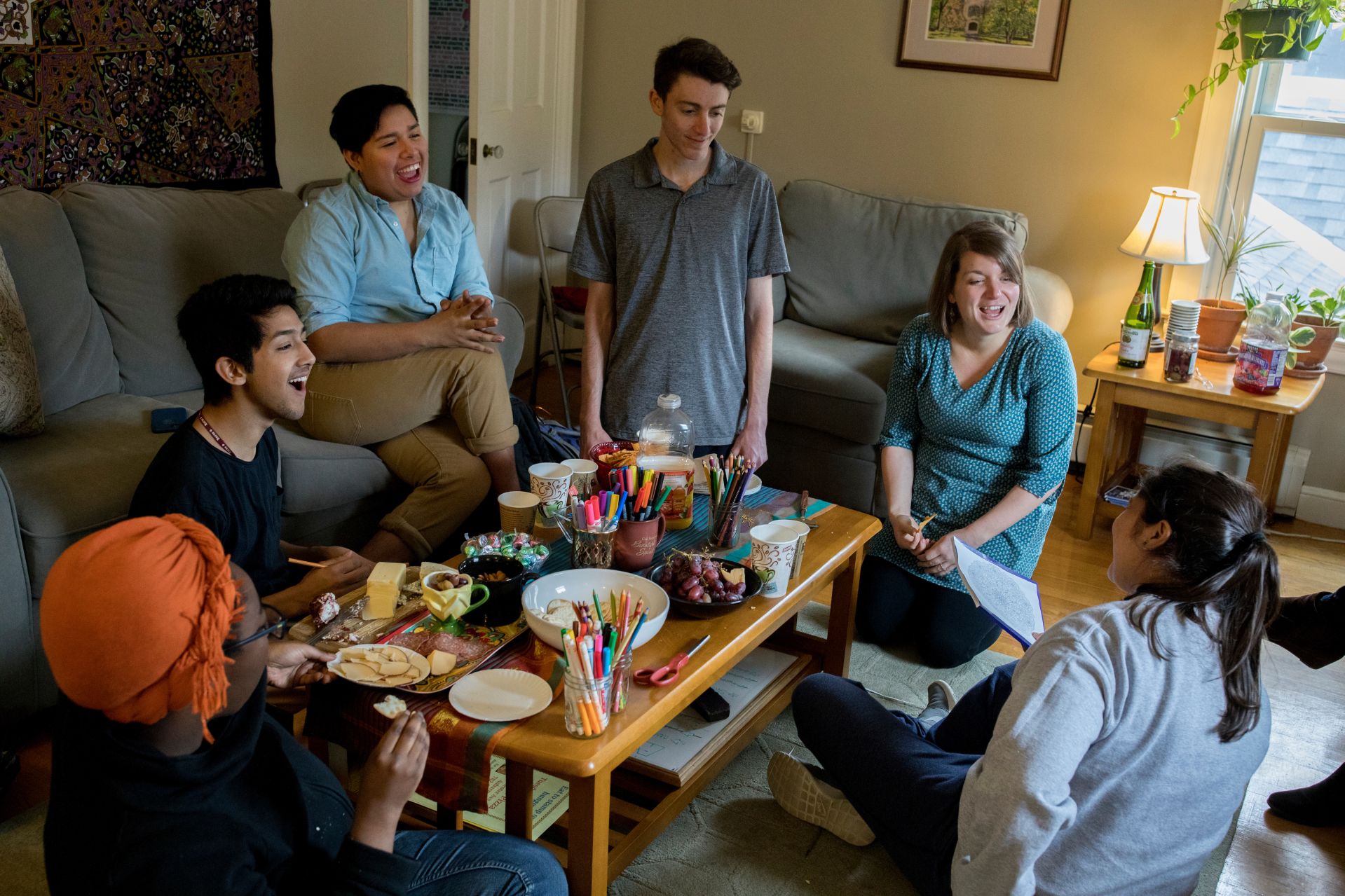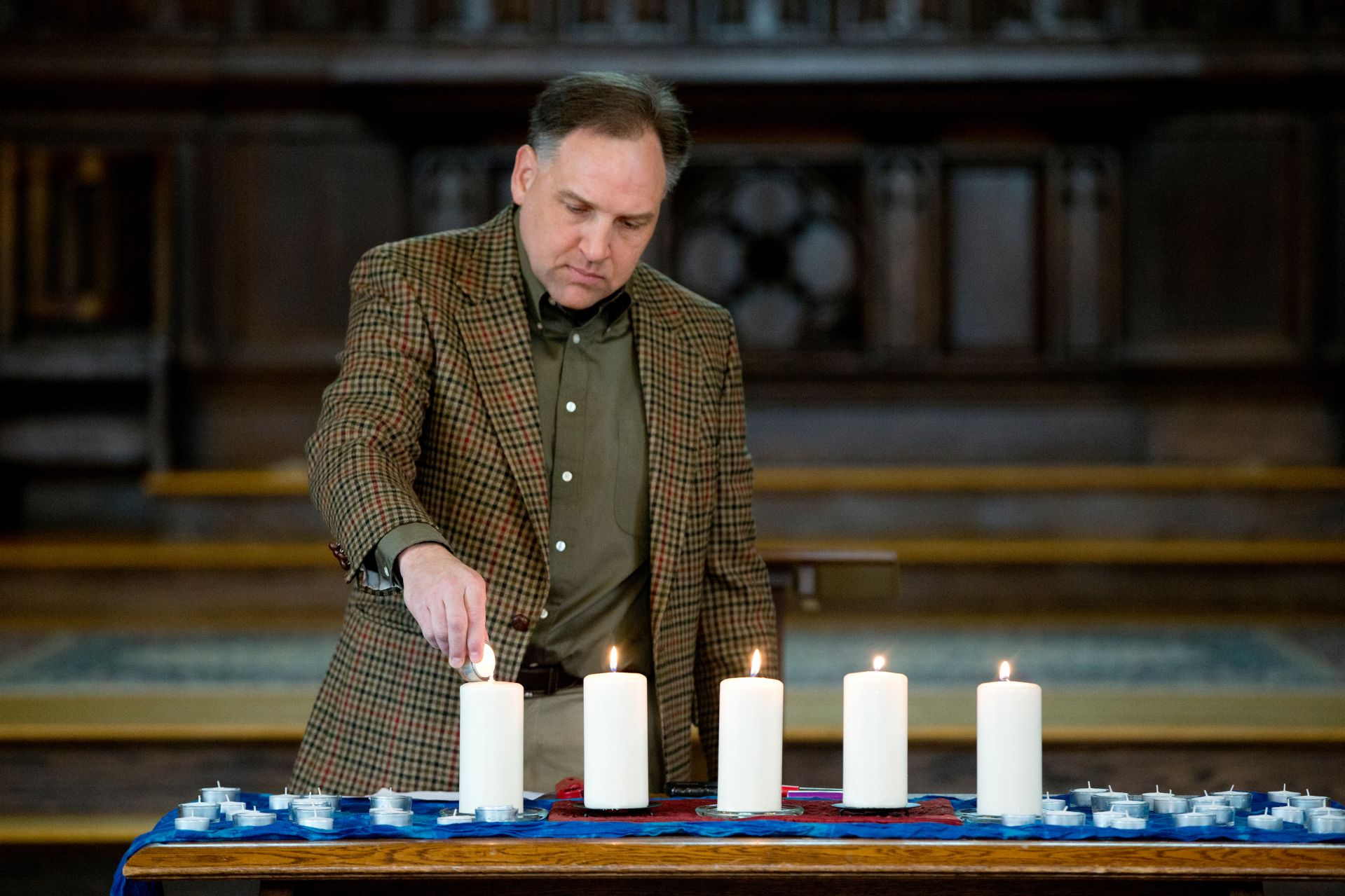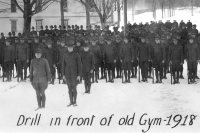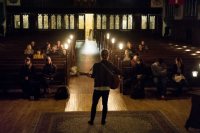
In one-on-one conversations, Multifaith Chaplain Brittany Longsdorf has helped many Bates students, as well as faculty and staff, navigate complicated emotions during the coronavirus pandemic.
“It feels hard to speak to your own personal woe amidst such collective distress,” Longsdorf says. “Right after Bates made the call to send students home, there were so many students who were really sad to miss those last few months together, to not feel like they had the time to say goodbye — but they felt really guilty voicing those things amidst universal sickness and death.”
For other students, it’s also hard to speak to their own happiness, says Longsdorf, whether it stems from being home with family or continued, purposeful engagement with their coursework.
“That’s a new complexity of my work, affirming that, yes, there is immense universal anxiety, and we should all care and be concerned about that. But we’re allowed to have our own personal difficulties and to process those — and also have joy.”

Brittany Longsdorf, second from right, sits with students during a 2017 spring-break gathering. Though students are no longer able to gather as closely as they’re doing here, Longsdorf and the rest of the Multifaith Chaplaincy are committed to maintaining a close, connected community. (Phyllis Graber Jensen/Bates College)
Bates was one of the first among its peers to adopt the multifaith model for its chaplaincy, and today’s Multifaith Chaplaincy supports all religious practices and individual spiritual journeys.
Among its central goals is giving the Bates community space to feel, reflect, and connect with each other. As the pandemic has forced most students to go home, employees to work remotely, and religious services to move online, that mission hasn’t changed.
“I describe my chaplaincy as one of warmth and hospitality, creating inviting spaces and then being a companion for whatever journey the person I’m sharing with is on,” says Longsdorf, an ordained Community of Christ minister who holds a doctorate of ministry. “I don’t think those elements have changed too much.”
In the past few weeks, some of the chaplaincy’s regular programs have gone online and even expanded. Hearth, a regular guided conversation previously for students only, has moved from Longsdorf’s house to Zoom and is now open to faculty and staff. A Wednesday-evening fixture, the art-based secular service called {Pause}, is also online.
“We want to provide something familiar wherever people are,” says Associate Multifaith Chaplain Raymond Clothier, also an ordained minister, in the United Church of Christ.
Supported in their work by faith-based spiritual advisers, the chaplaincy staff, as well as Bates students, have created opportunities to pray, reflect, and connect from afar. The chaplaincy has gathered resources for virtual religious services, particularly as major holidays and observances approach — Passover began on Wednesday, Easter is on Sunday, and Ramadan begins April 23.
Student religious groups are still active, emailing quotes and videos to each other, as well as questions for reflection. Longsdorf and Clothier say Bates community members have not come to them with pandemic-related theological questions, but they’ve been encouraged by the way many faiths have embraced virtual worship.
One Sunday, Clothier attended four different Christian services, each led by one of his former students. “The ones that are working the best are using Zoom webinars, a mix between pre-recorded elements and live. The pastor is sitting at a desk, not standing behind a pulpit in an empty church.”

Associate Multifaith Chaplain Raymond Clothier lights candles during a 2015 Veterans’ Day remembrance in the Peter J. Gomes Chapel. (Phyllis Graber Jensen/Bates College)
Virtual worship, Clothier says, could join much older means of connecting with the divine as “a new way of mediating the tradition.”
For instance, more than 70 people have joined a virtual retreat this month and are completing daily writings, art, and spiritual practices based on the Celtic myth of the Buried Moon.
“The places you miss, miss you too.”
“We’re in this time and place where everything feels very restrictive, and there’s not a lot we can access in the outside world,” Longsdorf says. “But there are these complex and beautiful worlds within us that we can dive very deeply into during this time, and find sources of wonder and exploration within ourselves.”
Through old and new experiences, and through Longsdorf and Clothier’s continued availability for one-on-one conversations, the chaplaincy hopes to “continue a spirit of connection at this time when everything feels so isolated,” Longsdorf says.
It’s helped her to think of lines from “The Moon” by poet Rainer Maria Rilke: “And the astonished places you inhabited and left / Ache more clearly for you.”
“The places you miss, miss you too,” Longsdorf says. “It’s not just that you might miss Bates, but these places feel your absence.
“We want to remind Bates people that they’re still a part of this place.”




